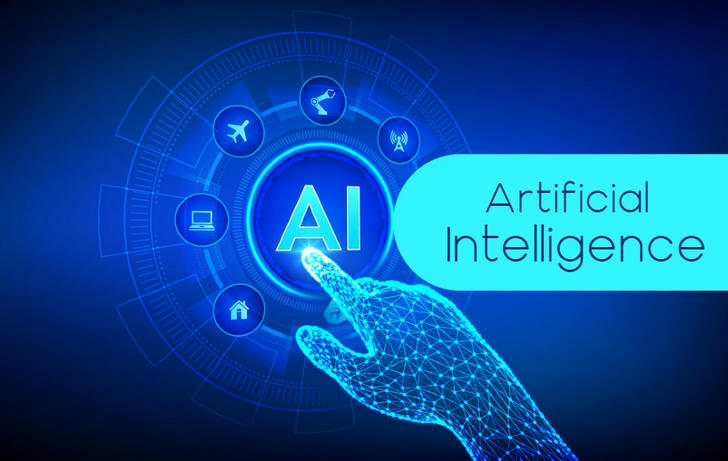Exploring AI Courses in the U.S.: A Guide to Learning the Future of Technology
Artificial Intelligence (AI) is no longer just a futuristic concept; it’s a vital part of our daily lives, from voice assistants like Siri and Alexa to self-driving cars. As AI continues to evolve, the demand for skilled professionals in this field is skyrocketing. Fortunately, the U.S. is home to a diverse array of AI courses offered by top universities and online platforms, providing opportunities for individuals of all backgrounds to step into the world of AI.
In this article, we'll dive into some of the best AI courses available in the U.S., explain the value of learning AI, and explore real-life applications of AI to show why it's worth considering as a career path.

The Growing Demand for AI Professionals 📈
Before jumping into specific courses, it's essential to understand why AI has become such a booming industry. According to the U.S. Bureau of Labor Statistics, the demand for AI-related roles like machine learning engineers and data scientists is expected to grow by 22% between 2020 and 2030, much faster than the average for all other occupations. This rapid growth makes now the perfect time to dive into AI education.
From healthcare to finance, AI is being applied in nearly every sector. For example, in healthcare, AI algorithms are helping doctors predict diseases and improve patient outcomes. In finance, AI is used to detect fraud and optimize investments. The applications of AI are vast, making it a field full of potential for job seekers.
Top AI Courses in the U.S. 🎓
1. Stanford University: CS221 – Artificial Intelligence: Principles and Techniques
Stanford University has long been at the forefront of AI research and education, and their CS221 course is one of the most well-regarded in the world. This course covers the fundamentals of AI, including search algorithms, probabilistic models, and learning methods. It’s a comprehensive dive into the principles of AI, offering both theoretical foundations and practical implementations.
Course Highlights: Machine learning algorithms, game theory, natural language processing (NLP), and AI ethics.
Why It’s Great: Stanford’s reputation and the course's detailed, well-rounded curriculum make it an excellent choice for serious AI enthusiasts.
2. Massachusetts Institute of Technology (MIT): 6.034 – Artificial Intelligence
MIT’s 6.034 is another highly respected AI course that provides a deep dive into AI techniques and their real-world applications. The course covers topics like search algorithms, logic, decision-making, and optimization. MIT uses a project-based approach, where students apply what they learn to solve real-world AI problems, which makes the course extremely practical.
Course Highlights: Problem-solving techniques, machine learning, and robotics.
Why It’s Great: MIT’s problem-based learning approach provides students with hands-on experience in AI development.
3. University of California, Berkeley: CS 188 – Introduction to Artificial Intelligence
UC Berkeley’s CS 188 is an introductory course that covers a wide range of AI topics. This course is designed to give students a solid foundation in the theory and practice of AI, including search algorithms, knowledge representation, machine learning, and computer vision.
Course Highlights: In-depth look at AI search algorithms, game-playing AI, and robotic planning.
Why It’s Great: Berkeley’s research-driven approach means students are exposed to cutting-edge AI research and trends.
4. Coursera: AI for Everyone (by Andrew Ng)
For those who want to learn AI but aren’t ready to dive into technical programming just yet, AI for Everyone on Coursera by Andrew Ng is the perfect entry point. This course is designed for non-technical learners and provides a comprehensive overview of AI and how it’s used in business, healthcare, and more.
Course Highlights: Introduction to AI concepts, AI’s impact on industries, and ethical considerations.
Why It’s Great: Andrew Ng is one of the most influential figures in AI education, and his approachable teaching style makes complex topics easy to understand.
5. Udacity: AI Programming with Python Nanodegree
Udacity offers a Nanodegree program specifically for AI programming, which focuses on using Python to implement AI algorithms. This program covers essential AI tools, including NumPy, pandas, and TensorFlow, and provides students with practical skills in machine learning, deep learning, and neural networks.
Course Highlights: Python programming, machine learning, and deep learning algorithms.
Why It’s Great: Udacity’s project-driven approach allows students to build a strong portfolio, making them job-ready.

Real-Life Applications of AI 🚗💡
AI isn't just theoretical; it’s already changing industries around the globe. Here are a few examples of how AI is applied in real life:
1. Healthcare: AI Diagnosing Diseases
AI’s ability to analyze vast amounts of medical data is transforming the healthcare industry. In fact, AI has already been used to develop algorithms that can diagnose diseases like cancer more accurately than human doctors. A famous example is Google's DeepMind, which created an AI that outperformed radiologists in detecting breast cancer from mammograms.
- Source: Nature, 2020 – DeepMind's AI model achieves accuracy above that of human radiologists.
2. Self-Driving Cars: The Future of Transportation
Companies like Tesla and Waymo are leading the charge in autonomous vehicle technology, using AI to navigate complex environments and make decisions in real-time. These vehicles rely on deep learning, computer vision, and reinforcement learning to interpret sensor data and navigate safely.
- Source: Tesla Autopilot, 2024 – Tesla’s AI-powered self-driving technology is continually improving, with AI responsible for making thousands of decisions per second to ensure safety.
3. Finance: AI in Fraud Detection
In the finance sector, AI is being used to detect fraudulent activity. AI models analyze patterns in transaction data and can flag suspicious behavior far more effectively than traditional methods. For instance, banks like JPMorgan Chase use machine learning algorithms to identify unusual spending patterns and prevent fraud.
- Source: JPMorgan Chase, 2023 – Machine learning models in fraud detection have reduced fraudulent activity by over 30%.
Why You Should Consider Learning AI 🔍
AI isn’t just for computer scientists; it’s for anyone looking to future-proof their career. Whether you want to work in healthcare, finance, robotics, or education, AI is a field that spans industries. By taking an AI course, you’re not just gaining technical skills—you’re preparing to be a part of the next wave of innovation that will shape the world.
Moreover, AI professionals are highly sought after, and companies like Google, Apple, and Amazon offer some of the highest-paying jobs in the tech world. A career in AI promises not just job security but the opportunity to make a meaningful impact on society.
Conclusion: The Future is AI 🌐🚀
In conclusion, the world of AI is rapidly expanding, and there’s no better time to start learning. Whether you choose a prestigious university course like Stanford's CS221 or a more flexible online course like Coursera’s AI for Everyone, there are countless opportunities for growth in this field.
As AI continues to shape industries, individuals with AI skills will be in high demand. So, if you're interested in building a career in one of the most exciting fields of the future, it's time to start your AI education today. The future of technology is waiting for you, and AI is at the forefront.
